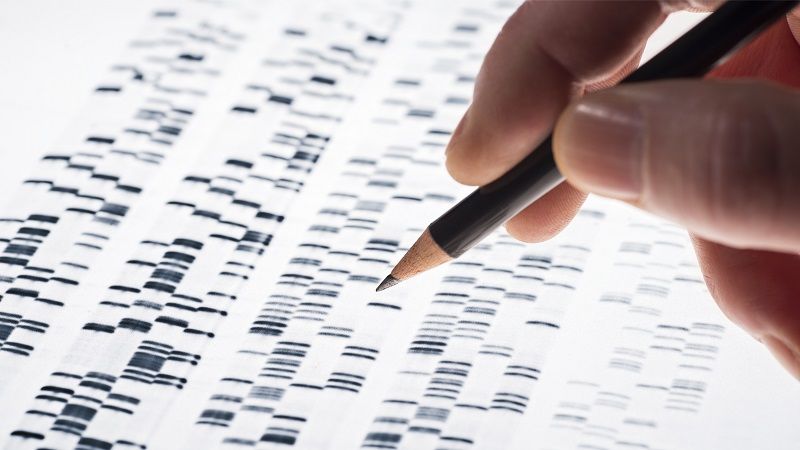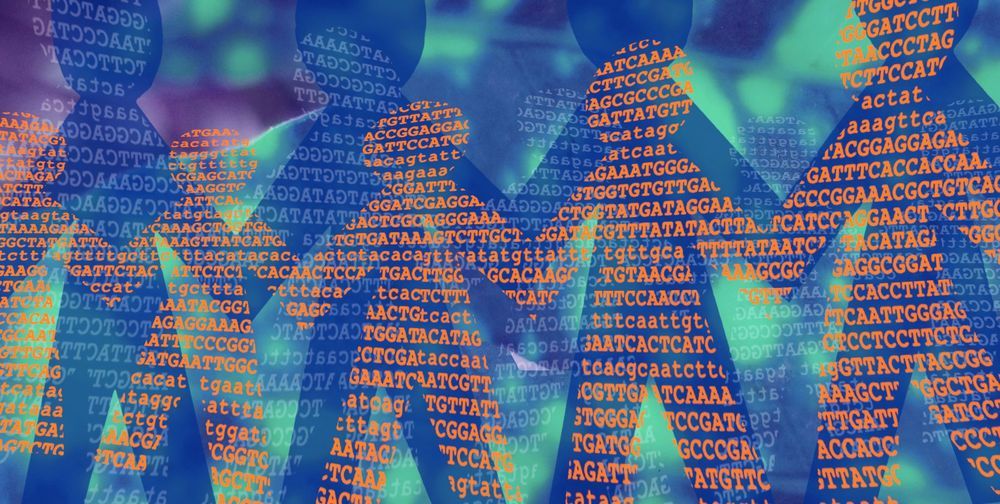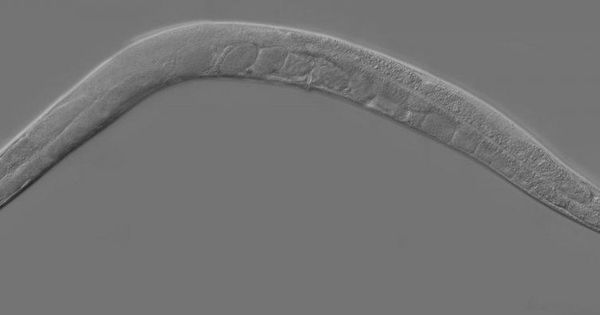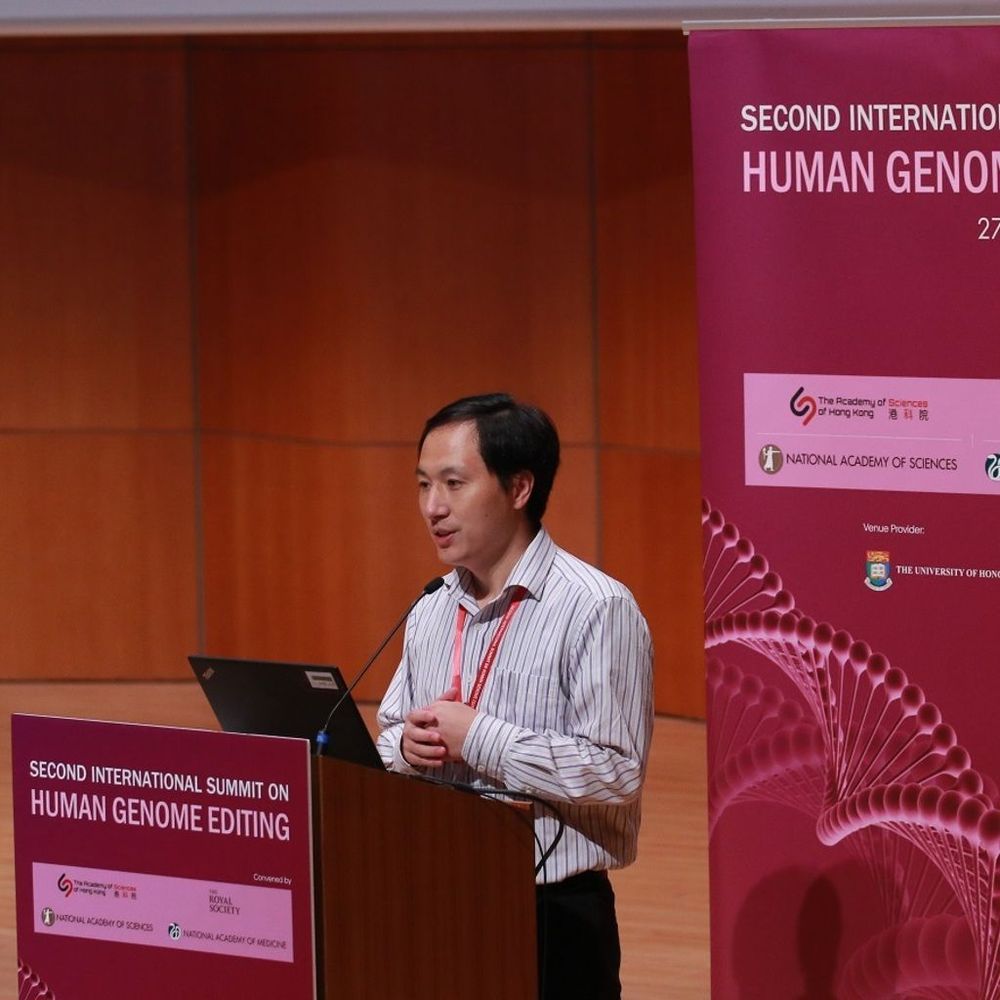Category: genetics – Page 491

This Harvard Prof Is Listing Genes That Could Make You Superhuman
Harvard geneticist George Church, famous for his plan to resurrect the woolly mammoth, has been assembling a list of genetic mutations and alterations that could give people longer lives and superhuman powers.
The spreadsheet, which reads like a mad scientist’s field notes, lists the known pros and cons of each gene. For instance, a specific mutation to the LRP5 gene would give you extra-strong bones — but also make you less buoyant in water. Other edits could give subjects resistance to radiation or incredible skills at holding their breath underwater.
All in all, the spreadsheet serves as a glimpse into the sort of changes we may expect once human gene-hacking becomes safer and more common.
Aging: past, present and future
Isaac Asimov referred to a 70-old man as an old individual who is unlikely to live much longer. Yet, given the present pace of discovery in the ageing field, the pace of ageing could be slowed within our lifetime, with science surpassing science fiction.
Thus, genetic studies have now firmly established that aging is regulated by specific genes conserved from yeast to mice [23,30–34].
Independently of discoveries of AP genes in model organisms, research in cellular senescence yielded complementary results. Cellular senescence is now widely recognized as an essential tumor suppressor mechanisms, and is not a decline due to cellular degeneration. In contrast, the senescence response is an active process caused by activation of both DNA-damage responses (DDR) and mitogen-activated pathways. Senescent fibroblasts acquire phenotypes that include hyper-secretion of inflammatory cytokines and other tissue-altering molecules and hypertrophic morphologies [35–42]. Senescent cells can alter the behavior of neighboring cells [35], and may drive aging and age-related diseases [43]. Cellular senescence can be prevented by knocking out cell cycle inhibitors such as p53, pRb, p21 and p16 [44–48].

NAD+ and Cellular Senescence Pathways Interact
A new publication highlights how the complex interaction of NAD+ and cellular senescence pathways may complicate proposed anti-aging therapies that boost NAD+ using precursors.
What are epigenetic alterations?
One of the proposed reasons we age is the changes to gene expression that our cells experience as we get older; these are commonly called epigenetic alterations. These alterations harm the fundamental functions of our cells and can increase the risk of cancer and other age-related diseases.

NIST Builds Statistical Foundation for Next-Generation Forensic DNA Profiling
Although NIST has now published the data needed to generate match statistics for NGS-based profiles, other hurdles must still be cleared before the new technology sees widespread use in forensics. For instance, labs will have to develop ways to manage the greater amounts of data produced by NGS. They will also have to implement operating procedures and quality controls for the new technology. Still, while much work remains, said Peter Vallone, the research chemist who leads NIST’s forensic genetics research, “We’re laying the foundation for the future.”
DNA is often considered the most reliable form of forensic evidence, and this reputation is based on the way DNA experts use statistics. When they compare the DNA left at a crime scene with the DNA of a suspect, experts generate statistics that describe how closely those DNA samples match. A jury can then take those match statistics into account when deciding guilt or innocence.
These match statistics are reliable because they’re based on rigorous scientific research. However, that research only applies to DNA fingerprints, also called DNA profiles, that have been generated using current technology. Now, scientists at the National Institute of Standards and Technology (NIST) have laid the statistical foundation for calculating match statistics when using Next Generation Sequencing, or NGS, which produces DNA profiles that can be more useful in solving some crimes. This research, which was jointly funded by NIST and the FBI, was published in Forensic Science International: Genetics.
“If you’re working criminal cases, you need to be able to generate match statistics,” said Katherine Gettings, the NIST biologist who led the study. “The data we’ve published will make it possible for labs that use NGS to generate those statistics.”

Google To Spend Billions Developing Gene Therapy For Heart Disease
Alphabet, Inc., the parent company of Google, plans to develop a life-long gene therapy for heart disease, the leading cause of death for men and women in the U.S.
Attaining this lofty goal will be the job of Alphabet’s gene-editing start-up, Verve Therapeutics, and Google’s life science start-up, Verily.
This month, Google’s venture fund, GV, partnered with three other funds to launch Verve Therapeutics with $58.5 million in Series A funding. The company’s scientific founders include Dr. Sekar Kathiresan (CEO), Dr. Kiran Musunuru (chief scientific adviser) and Dr. J. Keith Joung (strategic adviser).

Epigenetic ‘Memories’ That Could Pass On A Father’s Life Experiences Seen In Worm Sperm
We may like to think that what we do in our daily lives only affects ourselves and perhaps a few people around us, but the increasingly active field of scientific inquiry called epigenetics suggests that life experiences like what we eat and the environments we expose ourselves to can influence the health and development of our kids and the generations beyond them.
Studies of both humans and animals have suggested that a father’s experiences can be transmitted across generations, but the mechanism for this epigentic inheritance hasn’t quite been clear.
New research published Wednesday in Nature Communications details how Susan Strome’s lab at UC Santa Cruz observed the transmission of epigenetic markers in the sperm of the small roundworm Caenorhabditis elegans.

HIV-protective mutation may boost influenza death risk
LMAO The babies died of the flu Keep making mistakes on the aleal borders and the organism dies of viral infections… This seems to be exactly the same result as a majority of the cloned animals over the last thirty years too. It is hard to get that puppy of your favorite dog to stick… Pitty really for the genetically engineered children who will mostly suffer and die before adulthood.
Gene targeted in the ‘CRISPR baby’ scandal might prove fatal, study finds. Nick carne reports.

The gene therapy revolution is here. Medicine is scrambling to keep pace
Greg Dore at the Kirby Institute of NSW participated in Australia’s Hepatitis C pricing discussions, and believes our model will work for the new gene therapy drugs – notwithstanding their eye-popping price tags – and the fact that the patient populations for these rare genetic diseases will be tiny.
However, the real reason companies are getting into gene therapy is not just to treat rare disease. It’s because they realise this technology will be a game changer for medicine.